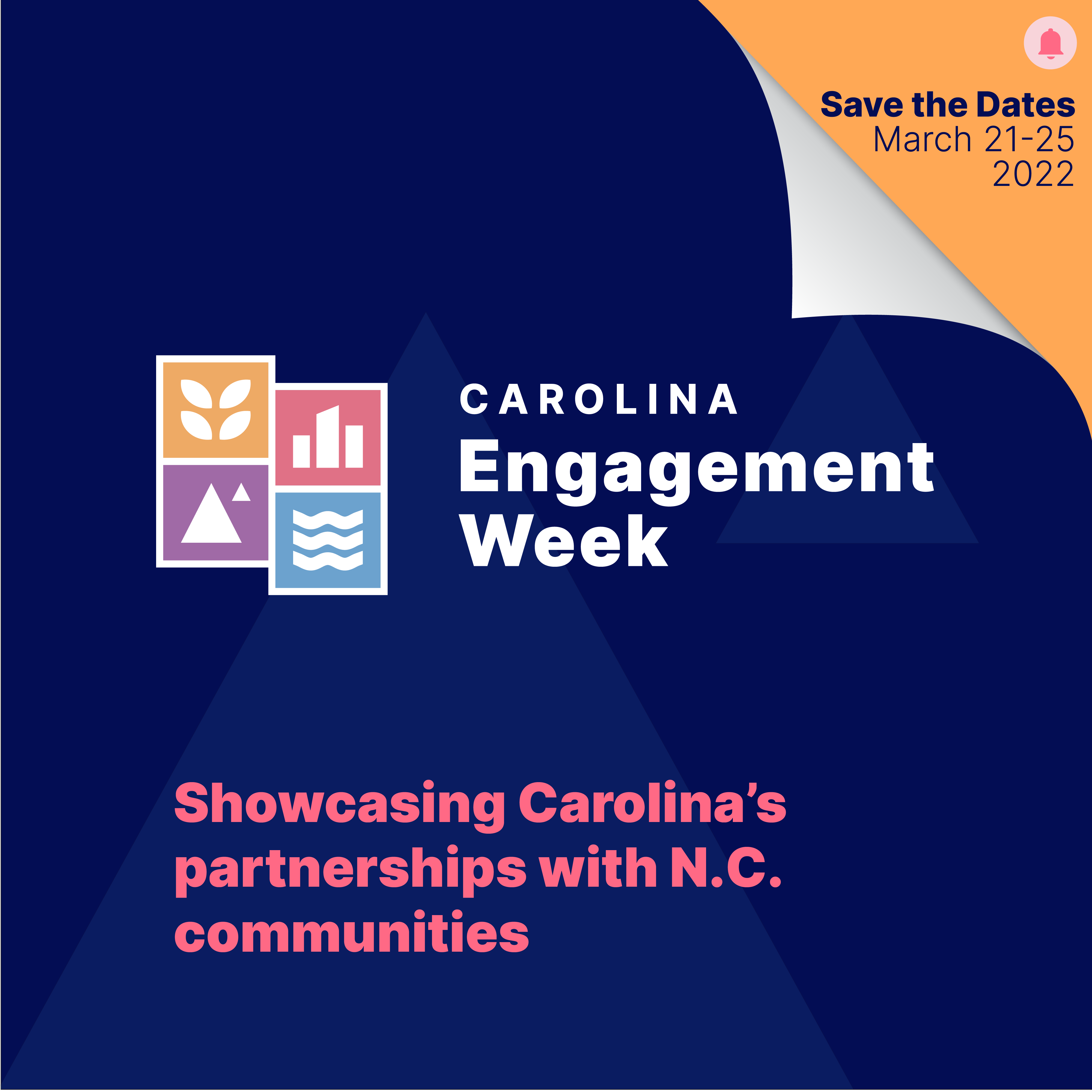Community Leadership and Connection in Eastern Carteret County
The UNC School of Government has long rooted its work in meaningful community partnerships. Long-term working relationships and a legacy of trust allow local leaders and practitioners working with School faculty and staff to create meaningful, tangible outcomes.
This approach is particularly important in communities grappling with deep-rooted and place-based challenges. Each region is wholly unique; its history, population, economy, demographics, environment, and landscapes combine to create a rich portrait entirely its own.
Eastern Carteret County on the North Carolina coast is a quintessential example of this uniqueness. The region is home to 16 unincorporated communities that historically relied on fishing as a major economic driver. Today, it faces challenges familiar to many neighboring communities, including poverty, opioid misuse, increased kinship care, and environmental vulnerabilities. These issues exist alongside complicating factors in the region: racial inequities, income disparities, and gentrification.
“Except for Beaufort, there is very little political capital in this part of the county,” said Susan DeWitt Wilder, resident and former nonprofit development officer. “There are deep community divisions between the unincorporated areas and Beaufort. Beaufort is also rapidly expanding and many of the new houses are second homes, which presents a challenge for strengthening community.”
Such complexities illustrate the importance of community-led problem solving, a collaborative mindset and approach, and an understanding of how systems work and are influenced. No one understands eastern Carteret County better than its residents, and no single individual or group could tackle any complex community challenge alone.
That understanding, and a grant from the Z. Smith Reynolds Foundation, led to the creation of the Eastern Carteret Collaborative (ECC) three years ago and more recently, its leadership development program, The Wave Effect. The collaborative exists to help the region “bounce forward and thrive by fostering connections, learning together, and sharing information.”
The School worked alongside ECC from its earliest days, providing support to local staff as they worked to conceptualize the project, create opportunities to build the network, and strengthen capacity building efforts. Knowing that a strong and stable foundation for the collaborative would be needed to sustain the work beyond the grant funds, School of Government faculty members Lydian Altman and Rick Morse and others advised ECC on the creation of a community leadership development program, which collaborative members eventually named “The Wave Effect.” The inaugural program was held over seven months, beginning in January 2021.
After the initial learning process with 18 individuals in The Wave Effect, the group is now focusing on expanding education with a larger number of collaborative members and with representatives from local county government and educational services. In the coming months, the group will direct resources toward producing trained Resiliency Educators in the community and through local county services.
The program’s format and content were developed by a team of advisors and staff and evolved over those months as class learning and local events shaped the eventual delivery. Altman and Morse provide advising on community leadership and government-community connection and engagement. They are joined by Patrick Jeffs, focusing on personal and community resilience, and Sylvia Burgess and Forrest Toms, advising on leadership, diversity, equity, and inclusion, and community engagement.
“The curriculum was influenced by its advisors, and the advisors were influenced by the challenges the community identified,” Altman said. “It was a very distinctive and organic process. This program is set apart because it is truly based on community rather than individual leadership.”
From the beginning, the School of Government’s approach to its community work and the goals of The Wave Effect were philosophically aligned. Program participants built meaningful, trust-based relationships that led to productive offshoot projects for the benefit of the community. More importantly, they learned it wasn’t necessary to “carry the load” by themselves. They could step up to assist with projects when they were able, but there was no judgement when they could not.
“The value of Wave Effect has been tremendous in our relearning process,” Dewitt Wilder said. “It created a strong group of trusted people and a sense that we could rely on each other. We needed to ensure we were engaging in system thinking and dynamic governance—approaches that weren’t as familiar to me as a nonprofit leader.”
“Launching this program was just continuing a conversation we’ve been having with leaders in the region for years,” Morse said. “We’ve always shared this fundamental philosophy on community engagement, leadership, and development. It roots change in deep engagement.”
The work of ECC and The Wave Effect would not be possible without the engaged partnership of the Z. Smith Reynolds Foundation, which provided a Collaborative Problem-Solving grant to launch the collaborative in 2019. The Foundation continues to meet with staff and members of the collaborative regularly; its willingness to fund capacity building and resilience work in the region is unique and has been deeply meaningful to the community.
“Z. Smith Reynolds supported the development of The Wave Effect as a real engine for us to move the collaborative forward,” DeWitt Wilder said. “They provided flexible funding for a social experiment for which there were no pre-defined goals and measurements.”
--
Lydian Altman and community members from eastern Carteret County will present a session on Wednesday, March 23 at 9 a.m. exploring the development and outcomes of Wave Effect. “Community Leadership Development in Eastern Carteret County” is part of Carolina Engagement Week.
Register for the session here.
Other School of Government events during Carolina Engagement Week:
“Measure What Matters in Carolina Across 100: Our Work, Our State”
Tuesday, March 22 – 10 a.m.
Register
“Lead for North Carolina – Bringing Carolina to Communities Across the State”
Thursday, March 24 – 10 a.m.
Register
Published March 22, 2022


